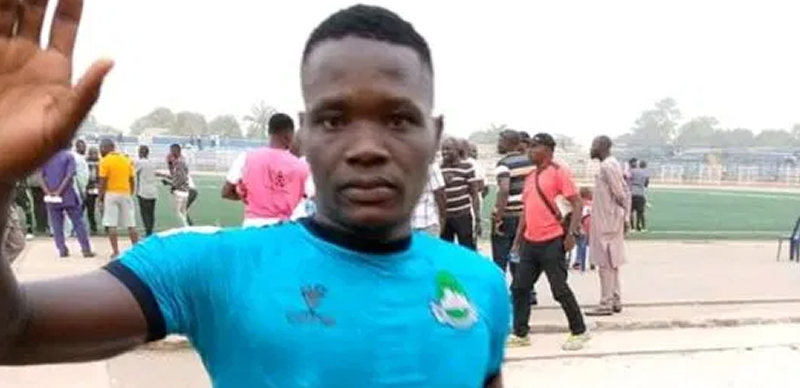The tragic death of Chineme Martins, a 23-year-old footballer playing for Nasarawa United in the Nigeria Professional Football League (NPFL), has culminated in a landmark ruling by the National Industrial Court of Nigeria. Martins collapsed and died during a league match against Katsina United in March 2020, an incident that sparked investigations into the circumstances surrounding his demise and the responsibility of various stakeholders. Five years later, the court has found Nasarawa United, the League Management Company (LMC), the Nigeria Football Federation (NFF), and the match commissioner culpable of negligence, marking a significant step towards accountability in Nigerian football.
The court’s decision centers around the concept of duty of care, a legal obligation requiring individuals and organizations to act towards others with a standard of reasonable care to prevent foreseeable harm. The ruling established that Nasarawa United, as Martins’ employer, had a primary duty of care towards him, a duty they demonstrably breached. Furthermore, the LMC, NFF, and the match commissioner, while not directly employing Martins, also held a responsibility to ensure that the club complied with relevant regulations designed to protect player safety and well-being. Their failure to enforce these regulations constituted a breach of their duty of care. While the exact amount of compensation was not specified in initial reports, the court mandated that Nasarawa United compensate Martins’ family for their loss.
The court’s findings highlighted critical failings in the medical provisions for Martins. It was deemed “reprehensible” that he was allowed to play without undergoing comprehensive medical tests, including an echocardiogram, a crucial diagnostic tool for detecting heart conditions. This lapse, coupled with the inadequate medical facilities at the Lafia Township Stadium where the match took place, contributed to the tragedy. The lack of proper medical assessment and readily available emergency medical care likely robbed Martins of any chance of survival. This stark revelation underscored the systemic negligence within the Nigerian football league system, where player safety seemed to have been compromised.
The ruling has been welcomed by Martins’ family and advocates for player safety. His brother, Michael Chineme, expressed his hope that the court’s decision would instigate meaningful change in Nigerian football. He emphasized the need for improved medical provisions and stricter adherence to safety regulations to prevent future tragedies. The case has brought to light the precarious situation faced by many players, especially in leagues with less developed infrastructure and oversight. The hope is that this ruling will serve as a catalyst for reform, prompting clubs and governing bodies to prioritize player welfare and invest in comprehensive medical support.
FIFPRO, the global players’ union, played a crucial role in supporting Martins’ family in their pursuit of justice. Their involvement highlights the importance of collective bargaining and advocacy in ensuring players’ rights are protected. The organization’s intervention not only helped bring this case to court but also sent a strong message that player safety is a global concern and that negligence will be challenged. This case sets a precedent for future actions and empowers players to demand better safety standards.
The ruling also raises broader questions about the responsibilities of sporting bodies in ensuring player welfare. It underscores the need for proactive measures, including regular medical check-ups, access to qualified medical personnel during matches, and well-equipped medical facilities at stadiums. Beyond the immediate provision of medical resources, it emphasizes the importance of a safety culture within sporting organizations. This includes educating players, coaches, and officials about recognizing potential medical emergencies and implementing clear protocols for handling such situations. The case of Chineme Martins serves as a poignant reminder that the pursuit of sporting excellence should never come at the cost of player safety.














